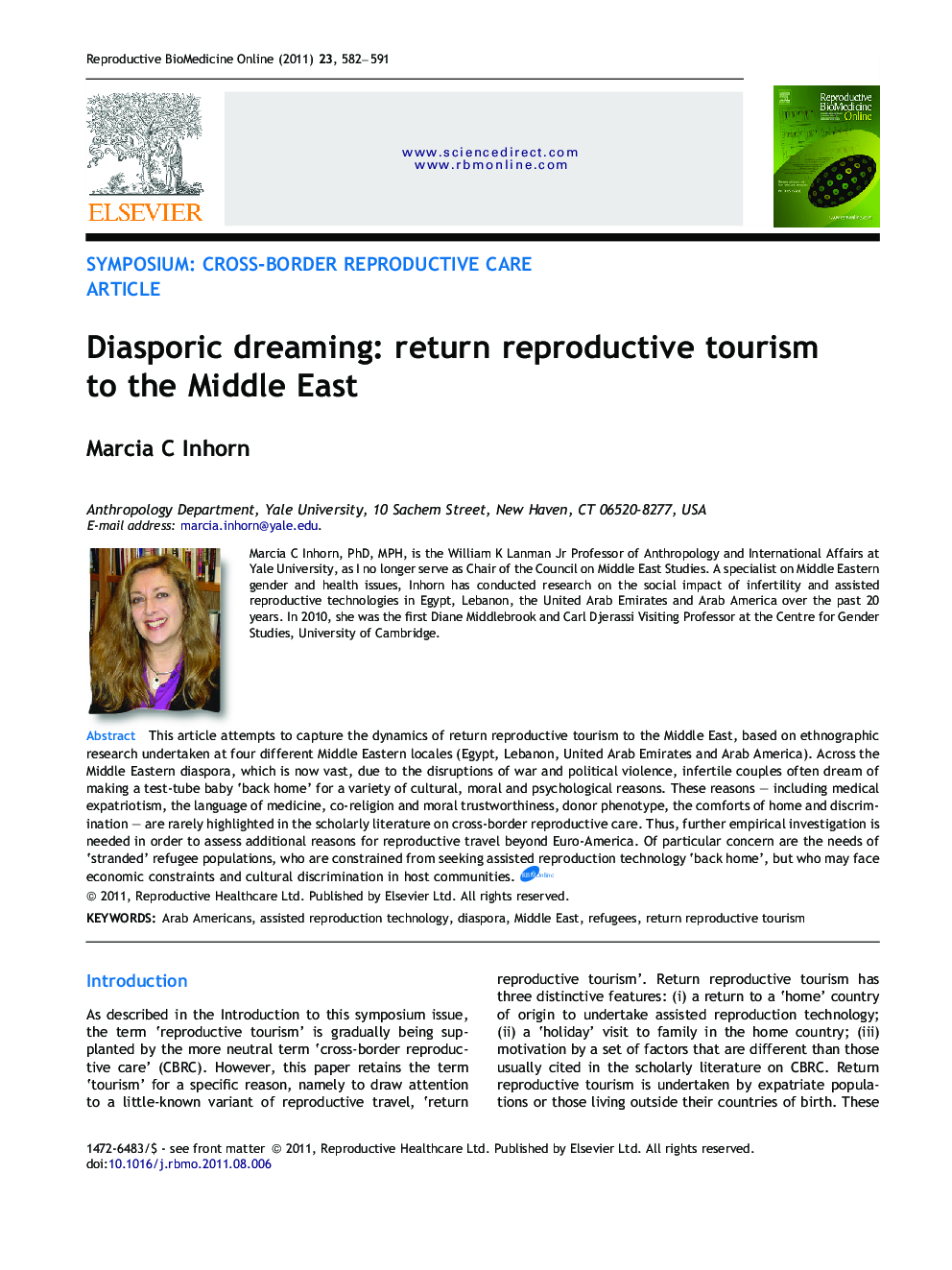| Article ID | Journal | Published Year | Pages | File Type |
|---|---|---|---|---|
| 3971333 | Reproductive BioMedicine Online | 2011 | 10 Pages |
This article attempts to capture the dynamics of return reproductive tourism to the Middle East, based on ethnographic research undertaken at four different Middle Eastern locales (Egypt, Lebanon, United Arab Emirates and Arab America). Across the Middle Eastern diaspora, which is now vast, due to the disruptions of war and political violence, infertile couples often dream of making a test-tube baby ‘back home’ for a variety of cultural, moral and psychological reasons. These reasons – including medical expatriotism, the language of medicine, co-religion and moral trustworthiness, donor phenotype, the comforts of home and discrimination – are rarely highlighted in the scholarly literature on cross-border reproductive care. Thus, further empirical investigation is needed in order to assess additional reasons for reproductive travel beyond Euro-America. Of particular concern are the needs of ‘stranded’ refugee populations, who are constrained from seeking assisted reproduction technology ‘back home’, but who may face economic constraints and cultural discrimination in host communities.This article attempts to capture the dynamics of return reproductive tourism to the Middle East. Middle Eastern migrants and refugees often dream of making a test-tube baby ‘back home’ for a variety of cultural, moral and psychological reasons. These reasons include home country patriotism and sense of comfort, similar language, co-religion with clinic staff, donor phenotypes and perceived discrimination in host countries. Of particular concern are the needs of ‘stranded’ refugee populations, who are unable to return home, but are constrained from seeking assisted reproduction technology in host communities.
